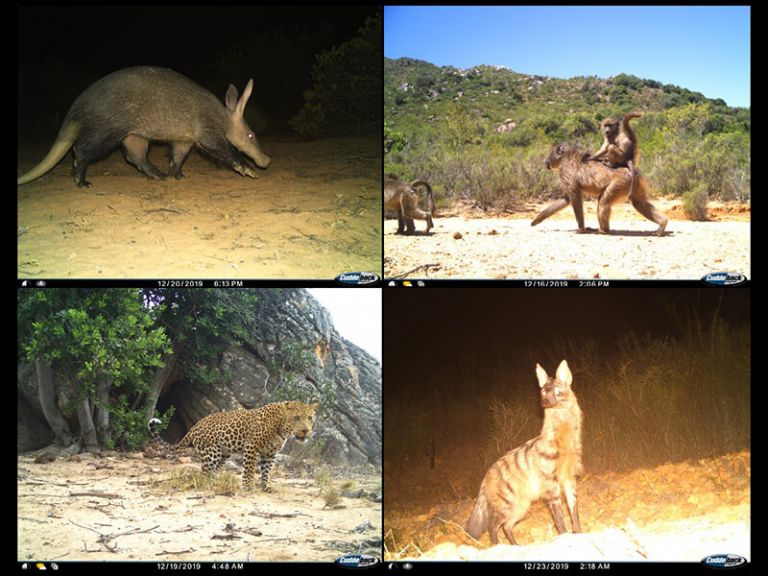Over the past few years, the Piketberg and surrounding mountainous areas have emerged as a hotspot of leopard activity. Leopards have never before been studied here and virtually nothing is known about their numbers, population density and diet in this region. To learn more, the Cape Leopard Trust, in collaboration with an MSc student from the University of the Free State, launched a large-scale camera trap survey in December 2019. The study involves a total of 128 field cameras deployed at 64 independent locations, over an area of 1500 km2.
Just over five months into the project we are very pleased to share that the Piketberg camera survey is yielding success! We have recorded leopard at a total of 58 out of 64 camera locations (a 91% success rate), indicating that our field team did a great job of site selection and camera setup. We have recorded 23 different mammal species to date, including aardvark, bat-eared fox and yellow mongoose. The cameras will remain operational until end Nov, and during this time leopard scat samples are also collected for dietary analysis.
The camera survey involves 55 different private properties and landowners, and their cooperation and support have been pivotal to the project’s success. The involvement from landowners is particularly encouraging since a very large proportion of suitable leopard habitat in the Western Cape is located on private land. The other integral element that has been key to the smooth running of the survey is the use of a reliable field vehicle. We would like to acknowledge and thank the Ford Wildlife Foundation for the Ford Ranger that is keeping our team on the move!
Please enjoy the highlight reel of images captured so far below.

















